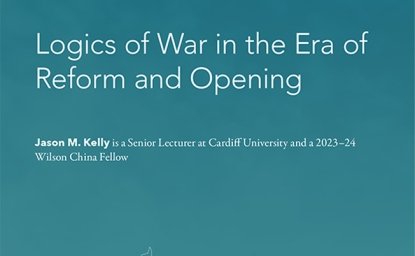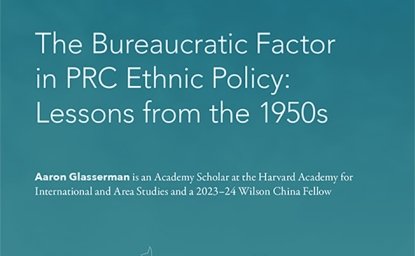233. National Political Ideas and Regime Changes: The Case of Central and Eastern Europe After WWII

When speaking about the former communist Europe, understanding its history and the emerging ideologies provides a key to comprehending its present. This paper presents some of the ideas that contributed both to shaping dissident movements after 1950 and to the collapse of totalitarian regimes in Central and Eastern Europe. I will focus particularly on the role of the intelligentsia in their respective societies' emancipation and transformation from objects into entities able to engage in the struggle for their interests.
In the late 1950s, some Marxist writers from Hungary, Yugoslavia, Czechoslovakia and Poland found the courage to support the idea of a pluralist political system against Stalinism and the idea of proletariat dictatorship. The philosopher Georg Lukacs - one of the active ideologues of intellectual life in Budapest and the initiator of the Petofi Circle civic forum and of Marxist university debates developed a comprehensive criticism of the communist regime, holding it up to ridicule.
Lukacs was the first Marxist philosopher to make the distinction between the act of perception and the act of evaluation, between will and prediction, between freedom and necessity. According to Kolakowsky, Lukacs gives the concept of "revolution" better articulated connotations than Engels and Lenin. During the 1956 revolution, Lukacs was part of the opposition to Stalinism, which was a centrist position in Hungary at the time. According to Norman Levine - editor and translator into English of The Process of Democratization - "Lukacs was only a part of the Leninist opposition to Stalinism that meant political reform movement which did not want political pluralism, or market economy, or to have Hungary withdrawn from Warsaw Pact." (Norman Levine, On the Transcendent of State and Revolution, in Georg Lukacs, The Process of Democratization). Even though he did not advocate a multiparty system in former communist Europe, Lukacs appreciated some of the basic principles of democracy. During the formative years of the opposition in Hungary, the fact that Lukacs had pointed out Stalin's flagrant mistakes with respect to Marxist ideology remained a reference point (see Georg Lukacs, "Stalin's Method. The Pure Alternative: Stalinism or Socialist Democracy", in Idem, The Process of Democratisation).
In 1962, in Conversations with Stalin, the Yugoslav writer Milovan Djilas describes the Moscow dictator as a monster with fundamentally utopian ideas, practising violence that extended as far as psychological torture and physical extermination. Djilas observed that the entire Kremlin ideology was based on non-European traditions of political thought and practice and that it would not end with the dictator's death. What was Djilas's contribution to the debate on the Soviet-type totalitarian regime? In The New Class. An Analysis of the Communist System (published in English in 1957), he identified the unsolved problems concerning the social and economical aspects in communist thinking. The worker is free, yet his possibilities to use this freedom are extremely limited. Djilas was convinced that if the communists did not change the bureaucratic system - the governmental monopoly - they would not stimulate the worker as an individual. This insufficiently developed civil society would only perpetuate the system in power. Not accidentally, when communism failed in Yugoslavia, both as a system and as an ideology, the old forms of the historical- Romanticist utopia of identity were easily resumed. Both the transition from communism to ethno-nationalism in the years following Tito's death and the breaking up of the Yugoslav federation have confirmed Djilas's hypotheses.
Polish intellectuals in the 1960s also remarked on the deep intolerance of communist regimes. They appealed to Poland's past political culture in support of freedom of the press. Adam Michnik took several steps: first, to urge the intellectuals to overcome fear, and never to lie; and second, to redefine the relations between intellectuals and the two main forces capable of changing Poland the workers and the Church. Michnik and his followers' goals were: to prepare society for political change; to assure the workers' unity; and to articulate a non-violent revolutionary movement. Michnik embraced the liberal ideas and the tolerance professed by a part of the Polish intelligentsia, which, in his case, made possible a clever and well prepared opposition to the repressive system of Polish communism (Czeslaw Milosz, Foreword to A. Michnik's, Letters from Prison and other Essays). In the 1970s, an opposition coalesced around the activities of remarkable intellectuals such as: in addition to Adam Michnik, Leszek Kolakowsky, Bronislav Baczko, Wlodzimierz Brus, Oskar Lange, Vitold Kula, Edward Lipinsky. This opposition, united under the banner of "Solidarity", had a powerful impact on the masses.
The Prague Spring of 1968 had suggested a different scenario - reform from within the party structures - changing, though briefly, the political orientation of the Warsaw opposition. The Polish students hoped for a Dubcek of their own. The Czechoslovakian lesson - in which the Polish anti-communists did not believe - became for Adam Michnik and for other intellectuals a chance for change, since it demonstrated the fragility of the totalitarian status-quo and Moscow's desperately brutal reaction. (A. Michnik, Penser la Pologne) The importance of "Solidarity" was evident for people like Michnik from the very beginning. He was convinced that the Poles were experiencing their last days of the servility first imposed upon them by the Nazis and later perpetuated by the communists. The revolt of 1980 led by "Solidarity" confirmed this hypothesis. (A. Michnik, Letters from Prison and other Essays).
The intellectual traditions of the Czech opposition were no less significant than the origins of the Polish intelligentsia. "Charter 77" was a remarkable civic and socio-political experience, to which many intellectuals contributed throughout the 1980s and the 1990s. The Czech intelligentsia acted in full accordance with their words and ideas. Vaclav Havel makes frequent reference to the philosopher Jan Patocka, the first "spokesman" of "Charter 77," from whose semi-clandestine school Havel himself claims to have learnt the important lessons of the pluralism of options, a dissident community, communications across frontiers, and of a critical approach to past and present. From Patocka's Heretical Essays, Havel gleaned the meaning of a supra-national fraternity of enlightened people. The Czech dissidents took advantage both of Patocka's philosophical work, which became a constant cultural point of reference, and of his life, which was in itself an outstanding ethical model.
Unlike Czech and Hungarian intellectuals, Romanian writers were content with a few liberal concessions from the Directorate of Cultural Propaganda. Even Marxist academics, who pointed out the contradictions of the regime from the inside, were silenced by Gheorghe Gheorghiu-Dej, Romania's first communist dictator. The Marxist intelligentsia did not fare better under Nicolae Ceausescu's national-communist dictatorship. Because of the strict control exercised by the Securitate (the Romanian political police), the intelligentsia failed to initiate political movements such as those in Hungary, Czechoslovakia and Poland (Vladimir Tismaneanu, Arheologia Terorii The Archeology of Terror). A number of political issues were discussed in literary papers in particular during the 1980s. In the absence of a political culture fully aware of its past and of any alternative political movement, the only opposition to Nicolae Ceausescu's dictatorship eventually came from the revolt of civil society.
Twice, Timisoara - the most western city of Romania - was in the middle of the anti- totalitarian protest, namely in 1956 and in 1989. In 1956, the citizens of Timisoara, Lugoj, Arad and Resita - workers, civil servants and students - protested against the Soviet invasion in Hungary. They called for anti-totalitarian measures to be taken, along the lines of those of the Budapest revolution, thus showing that the political system, the country's ruling government and their living standards, as well as Soviet pressure and Romania's humiliation toward Moscow were important issues to them. In Timisoara - a city with diverse and convergent cultural traditions - the students widely discussed the inferiority and inefficiency of the communist regime. In 1989, Timisoara became the first city in Romania to advocate the removal of Nicolae Ceausescu's dictatorship and the communist regime. One hundred thousand people went out on the streets of Timisoara in December 1989 to demonstrate their civic and political aspirations for freedom and their desire for setting up a pluralist democratic regime. Unfortunately, the Romanian intelligentsia did not have the organizational experience or the revolutionary programs of other Central European neighboring countries. Consequently, the revolutionary process in Romania was not as peaceful as in the rest of Central Europe , which has burdened the country's troubled transition to democracy.
The region's cultural traditions obviously played an important role in asserting opposition to the totalitarian system. The existence of a history of socialist ideas as well as the coagulation of civil society had a considerable impact on the organization of anti-Stalinist revolutions, on the revival of Marxist thinking, and on generating the process of democratization. In some of the Central and Eastern European states, the formation of oppositions and of alternative political thinking had been possible earlier than in Southeastern Europe. Yet the differences can be exaggerated. Comparisons of the intellectual evolutions and of the maturation of the intelligentsias are important if they can help determine the economic priorities and the type of reforms every nation needs. As a result, in the end analysis, despite distinctions mentioned previously, the nature of the state organization in each of the countries of Central and Eastern Europe is not the primary factor identifying fault lines between Central Europe and Southeastern Europe.
Victor Neumann spoke at an EES Discussion on May 9, 2001. The above is a summary of his presentation. Meeting Report #233.
Author

Global Europe Program
The Global Europe Program is focused on Europe’s capabilities, and how it engages on critical global issues. We investigate European approaches to critical global issues. We examine Europe’s relations with Russia and Eurasia, China and the Indo-Pacific, the Middle East and Africa. Our initiatives include “Ukraine in Europe”—an examination of what it will take to make Ukraine’s European future a reality. But we also examine the role of NATO, the European Union and the OSCE, Europe’s energy security, transatlantic trade disputes, and challenges to democracy. The Global Europe Program’s staff, scholars-in-residence, and Global Fellows participate in seminars, policy study groups, and international conferences to provide analytical recommendations to policy makers and the media. Read more

Explore More
Browse Insights & Analysis
Logics of War in the Era of Reform and Opening


